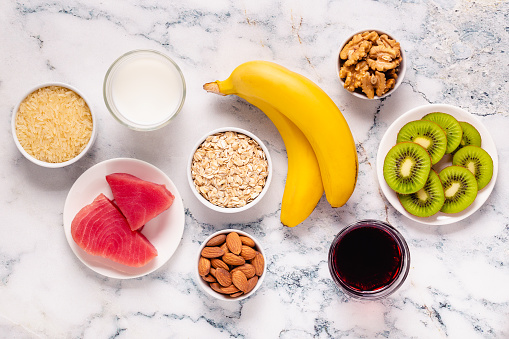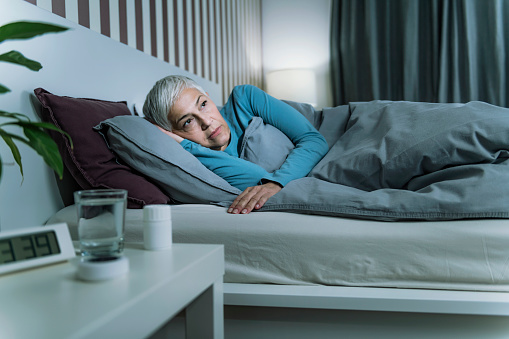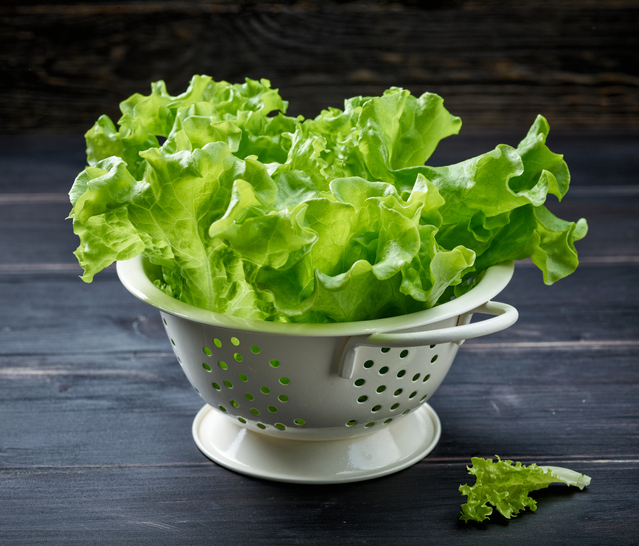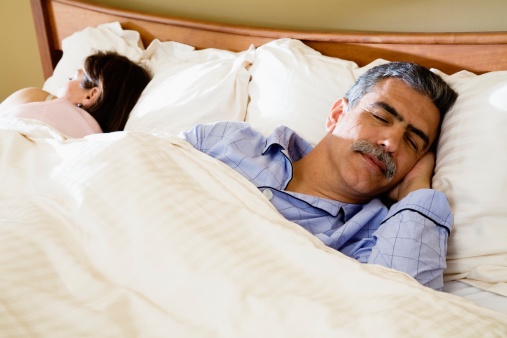It’s the end of a trying day, and you’d like nothing better than to curl up with some Funyuns, maybe a glass of merlot and the latest Netflix must-see. Sounds ideal, right? Maybe, except you might pay the price by not getting a solid night’s sleep. Why? What you eat has a major impact on how you sleep, which in turn affects your overall health. According to the Centers for Disease Control, lack of quality sleep can lead to mental and physical problems such as an increased risk for:
- Obesity
- Diabetes
- High blood pressure
- Coronary heart disease
- Stroke
- Frequent mental distress
So we can all agree — good sleep is a great goal. Getting there, however, can be easier said than done. Thankfully, we have many chances during the day to make food choices that support a restful night.
Foods That Promote Sleep

Certain foods contain chemicals that can promote a soporific effect, helping you drift off easier. W. Christopher Winter, MD, president of Charlottesville Neurology and Sleep Medicine in Virginia, advises incorporating the following foods into your diet:
- Melatonin: Found in kiwis, tart cherries, goji berries, milk, fish and nuts. Honey also helps the body release melatonin. “Melatonin resets your clock. It’s a chemical that’s important for synchronizing our sleep with our environment,” explains Dr. Winter.
- Magnesium: Found in nuts, grapes, avocados, honey, leafy greens, fatty fish, legumes, tofu, bananas, seeds and whole grains. “Magnesium is a cofactor in a lot of the processes that make the chemicals that make us feel sleepy, and it’s got some muscle-relaxing properties, which creates a calming effect,” he adds.
- Tryptophan: An amino acid found in game meat, chickpeas, eggs, dairy, fish, peanuts, tofu, pumpkin and sesame seeds, and yes, turkey. Again, raw honey can help trigger the release of tryptophan. But the truism that it’s the turkey that makes you sleepy after a Thanksgiving meal is largely untrue. Turkey doesn’t contain that much tryptophan. Instead, it’s probably the overeating of carbs and drinking alcohol that’s knocking you out.
Honey, The Insomniac’s Friend
Honey not only contains magnesium and helps trigger the release of melatonin and tryptophan, but it also blocks the release of orexin (aka hypocretin). This is the neuropeptide that regulates wakefulness and arousal, says Dr. Winter. A good pre-bedtime ritual could be a drizzle of honey in hot herbal tea or warm milk.
Try the Mediterranean Diet
If you want to follow an overall diet that promotes good sleep, Dr. Winter notes that the Mediterranean diet can provide balanced nutrition and many other health benefits, such as reduced cardiovascular risks. According to the Mayo Clinic, the Mediterranean diet includes:
- Daily intake of vegetables, fruits, whole grains and healthy fats such as olive oil
- Weekly intake of fish, poultry, beans and eggs
- Moderate portions of dairy products
- Limited red meat
Other Pro-Sleep Tips
Whether you get them from your relatives or the internet, some food-related sleep solutions might merit a second opinion (from an actual doctor this time):
True or False: Warm Milk Will Make You Sleepy
True. “It has to do with two things: First, when you heat up your body, and then your body cools, that cooling process is a natural sleep promoter. Second, there’s a lot of proteins in milk that eventually make their way into that tryptophan pathway,” explains Dr. Winter.
True or False: Lettuce Tea Is a Sleep Aid
Mixed: A Tik-Tok fad says you should boil lettuce leaves in hot water and drink the tea to help get to sleep. “There is a chemical in lettuce called lactucarium that used to be called lettuce opium. People have tried to medicalize the property, but there isn’t much science behind it. The hot water alone can be sedating. It can’t hurt to try. If it works for you, why not?” says Dr. Winter.
Foods That Disrupt Sleep
Sometimes it’s what you don’t do that counts. If you want a solid night’s sleep, stay away from or limit your intake of the following, especially when it’s close to bedtime:
- Alcohol and caffeine: Alcohol will allow you to fall asleep, but you won’t stay asleep. Caffeine will keep you so wired that you just won’t fall asleep. And caffeine is not just in coffee and black tea; chocolate has a significant amount as well.
- Spicy and high caloric foods, especially late at night: Overeating, in general, is a bad idea because you will go to bed bloated, and it can cause gas, heartburn and indigestion.
- High carbs: Processed foods, sodas, sugars and chips may be sedating, but your actual sleep quality will be poor.
The Takeaway
If you find you aren’t sleeping well, check your diet. You may be eating things that wreak havoc on quality slumber. With some simple changes, you could be back to snoozing the night away.
What helps you get better sleep? Leave your sleep tips in the comments for other readers to try.








This is wonderful information to have.
Will share with others.
Reading a good book on my kindle helps me go to sleep. A good read will take me out of this world, into one which reminds me, at times, to be grateful for this world. and the kindle goes to sleep also, when I drop off.
THIS WAS A LOT OF GOOD INFORMATION. I WILL TRY SOME OF THESE AND SEE IF IT WORKS FOR ME. I HAVE A LOT OF PROBLEMS WITH ACHY JOINTS ESPECIALLY MY KNEES. THANKS FOR THE INFO.
Great info I’ll try it out !!
The article was very informative.
Thank you, I needed that, will certainly make good use of this night diet.
You are the best.
ML
GENTLE YOGA is a great help to relax the mind, body and sprirt.
I attend the GENTLE YOGA classes at the YMCA and 9 times out of 10, I go into a deep sleep. You focus on DEEP BREATHING and the gentle exercises and the body seems to disappear and the mind is at total peace. You do the GENTLE YOGA exercises that require standing or sitting before getting into bed (takes about 20 minutes) and do the last part laying in bed. It only took about 6 sessions before I let my mind relax and be able to go with the flow. Now I can do it without watching or attending a class.
You can learn to do the GENTLE YOGA exercises on the internet.
A lot of good information for following a healthy night diet and hope to put that into practice.
For poor circulation. I heat up a towel in my clothes dryer for about 7 or.8 minutes. Wrap around From waist. Sure helps. You get warm
This is very informative. I am trying to save this and print it from my laptop but unable to, so keep on sending the helpful information. Thank you, Liz
Exercise is important for the promotion of sleep. Also – Get up and go to bed at the same time daily. Stay off screens an hour before bed. Have a nightly routine that signals your brain/body that it’s time to sleep.
I do agree with most things written above. I would like to help others by setting up a specific time to go to bed. Your biological clock will tick when that time comes. Don’t put too many distractions in the room, like TV, telephone, bright light. Make your bedroom as if that’s the last place to rest. Pillows and type of linens is very important. Take a warm or cool shower according to the weather. And lastly, say a prayer 🙏 of gratitude to the Creator of all things.
I enjoyed learning about the food and drinks that affect my sleep. I will also share this great information. Thank you, The Hartford.